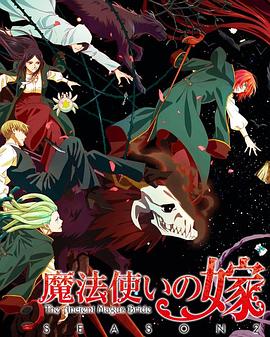猜您喜欢
-
 更新至第24集
更新至第24集 祭品公主与兽王
本渡枫,吉野裕行,日野聪,畠中祐,潘惠美,伊藤静,小林亲弘,克里斯蒂安,藤原夏海,土田大,朝井彩加,厄洛斯,早见沙织,花泽香菜,三野雄大 -
 更新至20集
更新至20集 乌鸦不择主
七海弘希,白熊宽嗣,福原绫香,青山吉能,河西健吾,钉宫理惠,竹内荣治,田村睦心,田中敦子,本泉莉奈,入野自由,日野聪 -
 更新至03集
更新至03集 魔法使的约定
帆世雄一,伊东健人,三浦胜之,浅沼晋太郎,田丸笃志,冈本信彦,永野由祐,寺岛拓笃,河本启佑,土岐隼一,杉山纪彰,神原大地,日野聪,森川智之,铃木千寻 -
 更新至11集
更新至11集 排球少年!!垃圾场决战
山本兼平,村濑步,立花慎之介,木村昴,内山昂辉,木村良平,逢坂良太,中村悠一,名冢佳织,土屋神叶,细谷佳正,日野聪,石井马克,横田成吾,池田恭祐 -
 完结
完结 死神 千年血战篇第二季
森田成一,石川英郎,滨野大辉,高冈瓶瓶,梅原裕一郎,山寺宏一,久川绫,折笠富美子,安元洋贵,羽多野涉,武内骏辅,楠见尚己,樫井笙人,日野聪,志村知幸 -
 更新至12集
更新至12集 魔王2099
石谷春贵,山根绮,金元寿子,伊藤静,古贺葵,松风雅也,菱川花菜,梅原裕一郎,日笠阳子,名冢佳织,日野聪,贯井柚佳,浪川大辅,伊藤美来,佐藤节二 -
 更新至14集
更新至14集 浪客剑心 明治剑客浪漫谭第二季
中村悠一,山下大辉,八代拓,山根绮,大西沙织,内田雄马,齐藤壮马,日野聪,小市真琴,高桥李依,古川慎 -
 更新至12集
更新至12集 魔法使的新娘 第二季
甲斐田裕子,田村睦心,竹内良太,小山茉美,西山宏太朗,日野聪,小林大纪,山下诚一郎,山下大辉,津田美波,远藤绫,上田丽奈,夏谷美希,浪川大辅,诹访部顺一 -
 更新至12集
更新至12集 再见龙生,你好人生
日野聪,天海由梨奈,朝日奈丸佳,石毛翔弥,松冈美里,松永茜,大桥彩香,金元寿子,水中雅章,松井惠理子,武内骏辅,野津山幸宏,佐佐木未来,关根瞳,小仓唯 -
 更新至09集
更新至09集 再见,地球
佐藤节二,泽城美雪,花江夏树,津田健次郎,日野聪,早见沙织,菲鲁兹,榎木淳弥,诹访部顺一,内山昂辉,小清水亚美 -
 更新至07集
更新至07集 稗记舞咏
田丸笃志,井上和彦,竹内顺子,梶原岳人,石川界人,铃木崚汰,日野聪,村濑步,平川大辅,笹沼晃,岸尾大辅,下野纮,木村良平,橘龙丸,田村睦心